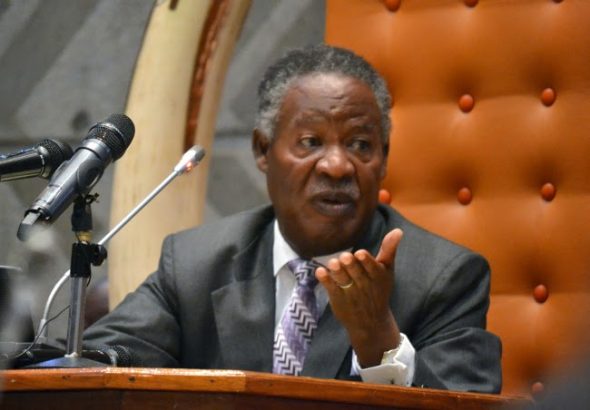
Mnangagwa tells Putin US is ‘consolidating’ military bases in Zambia.
Hichilema’s controversial stance on AFRICOM was made without consulting or obtaining approval from either his Cabinet or Zambia’s Parliament, despite its notable regional ramifications.
By Mpandashalo Mwewa.
Lusaka, June 8 – In a surprising turn of events, Zimbabwe’s President Emmerson Mnangagwa has contacted his Russian counterpart, President Vladimir Putin, seeking military aid to safeguard Zimbabwe from neighbouring Zambia.
This surprising development underscores the concealed yet escalating tensions between the two Southern African countries and the evolving geopolitical dynamics in the region.
Also Read: Hichilema skips a fruitful Africa – Russia Summit for a fruitless visit to Israel.
◾Zambia’s Consolidation of Western Ties: According to the video transcript, the Western powers have been actively strengthening their authority and influence in Zambia, Zimbabwe’s northern neighbour. This encompasses both security and financial assistance, leaving Mnangagwa feeling increasingly marginalized and endangered.
President Hichilema’s decision to allow the United States Africa Command Centre (AFRICOM) to establish a presence in Lusaka has sparked significant concerns in both Zambia and the wider region.
AFRICOM, headquartered at Kelley Barracks in Stuttgart, Germany, is one of the eleven unified combatant commands of the United States Department of Defense.
Both the Southern African Development Community (SADC) and the African Union (AU) have cautioned member states against accepting the establishment of foreign military facilities, bases, or security offices by major powers. Such actions risk dragging Africa into proxy wars between superpowers and importing their military conflicts onto African soil.
Also Read: This is a wrong time to align Zambia with the US with a changing geopolitical landscape.
◾Mnangagwa’s Plea for Russian Military Assistance: Confronted with what he perceives as a threat from Zambia, Mnangagwa has sought military assistance from Russia. In a recently released video clip, the Zimbabwean president is seen directly addressing Putin, appealing for military aid to safeguard Zimbabwe from its neighbour.
Mnangagwa’s action is highly unconventional, as it not only involves a foreign power in a regional conflict but also entails openly criticizing a fellow member of the Southern African Development Community (SADC), of which he is poised to become the chairperson.
This decision is likely to draw criticism from other SADC leaders, particularly the current chairperson, Zambian President Hakainde Hichilema.
◾The Shifting Geopolitical Landscape in Southern Africa: The tensions between Zimbabwe and Zambia reflect the larger geopolitical changes unfolding in Southern Africa. Historically, the region has been under the sway of South Africa’s influence, but the increasing involvement of external powers like the West and Russia is reshaping alliances and sparking new tensions.
Zambia’s alignment with the West, particularly the United States, is viewed as a challenge by Mnangagwa’s administration, which is struggling to maintain its authority and position in the region. The appeal for Russian military assistance represents a last-ditch effort by Mnangagwa to counter this perceived threat and assert Zimbabwe’s influence in the region.
◾Implications for Regional Stability: The aftermath of Mnangagwa’s appeal for Russian military aid is poised to deeply impact regional stability. The Southern African Development Community (SADC), traditionally a bastion of cooperation and conflict resolution, may now be drawn into a convoluted geopolitical conflict that risks eroding its effectiveness.
Additionally, the intervention of external players like Russia in regional dynamics could escalate tensions and foster a more precarious security climate. This could spell far-reaching ramifications for the populations of Zimbabwe, Zambia, and the wider Southern African region.
◾Conclusion: The revelations from the video transcript have shed light on the concealed yet escalating tensions between Zimbabwe and Zambia, amidst the shifting geopolitical landscape in Southern Africa.
Mnangagwa’s appeal for Russian military aid portrays a hasty and unprofessional attempt to counterbalance Zambia’s growing influence and the strengthening presence of Western powers in the region.
However, this move also serves as a message to Zambia’s President Hakainde Hichilema, urging him to prioritize cooperation, diplomacy, and the well-being of Zambian citizens over his narrow self-preservation politics.
Hichilema’s contentious foreign policy stance on AFRICOM was executed without consultation or approval from both his Cabinet and Zambia’s Parliament, despite its significant regional implications.
Given these circumstances, despite its unprofessional execution, Mnangagwa’s appeal for Russian military aid appears warranted, given the geopolitical and security challenges emerging in the region, especially with the backing that the USA Government and its allies are providing to Zambia.
Drawing from the legacy of Zambia’s founding President, Dr. Kenneth Kaunda, who pursued a non-aligned foreign policy, President Hichilema can learn to deftly balance local, regional, and global interests without jeopardizing the stability of Zimbabwe and other SADC member states.
Also Read: Hichilema erases Zambia’s non-aligned foreign policy image!
About The Author: Mpandashalo Mwewa holds the position of Chief Editor at Woodpecker’s Digest, having previously served as Chief Editor at Zambia Reports and Eagle One – Zambia. Recognized as a Pan-African advocate for education reforms emphasizing critical thinking, Mpandashalo utilizes journalism as a means to drive social change.
About Our Advocacy: Woodpecker’s Digest is an online platform that delivers news analyses and commentaries on pertinent issues of national interest, along with articles on personal development and health. Journalism stands as a powerful instrument for driving positive socio-economic transformation!
©2024 Woodpecker’s Digest.
Putting news into perspective








